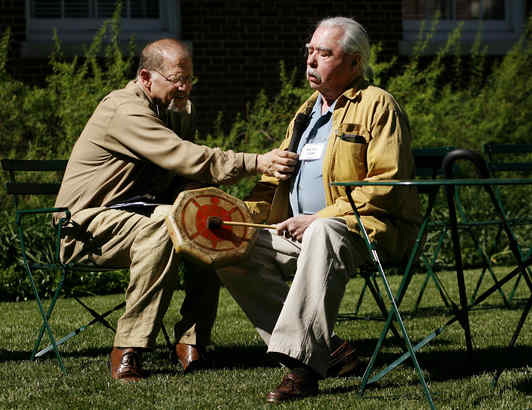By Christina Good Voice
Okmulgee Creek language students Lillian Thomas, Pat Factor, Alfred Harley and Chalakee star in "Bocv, Hoktvlkogee," which is a comedy set in a Creek household when Grandma is away and Grandpa is in charge of making dinner for a visiting preacher.
"I enjoy being in this class," Chalakee said. "They said you play this part and I said, 'ok, I'll try.' I think I'm ready. I enjoy the classes too"
The other play is performed by the Tulsa Creek Indian Community language class.
"Nettv Momen Nere" is based on a traditional story written down by Jackson Barnett. This story explains how the animals met together to decide which should be longer, day or night. Based on Barnett's story, students in the Tulsa Creek Indian Community language class tried to imagine what the animals in this story might have said and done as they held their fateful meeting. Actors in the play are Jane Bardis, Margo Smith, Tallulah Smith and Adam Recvlohe.








